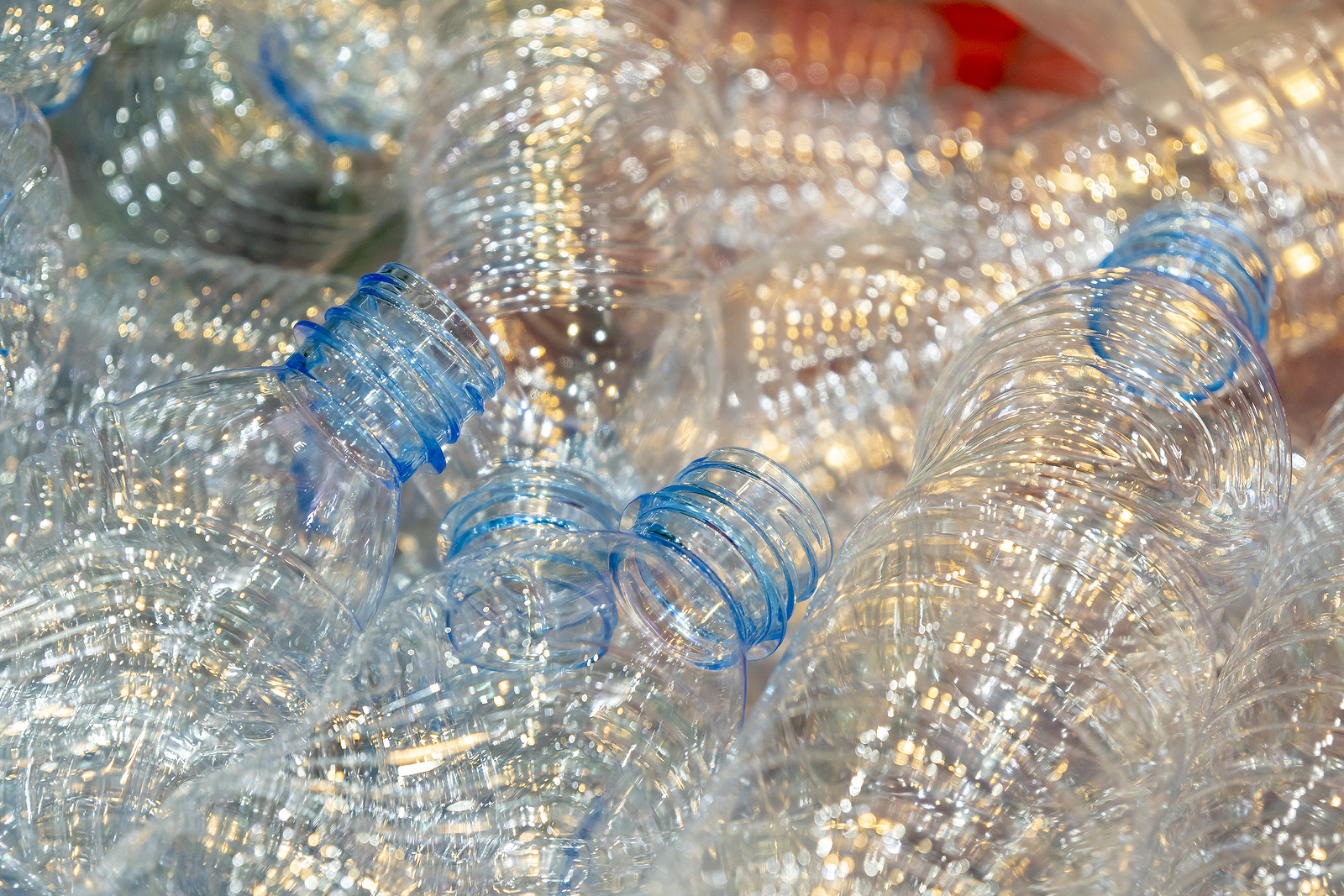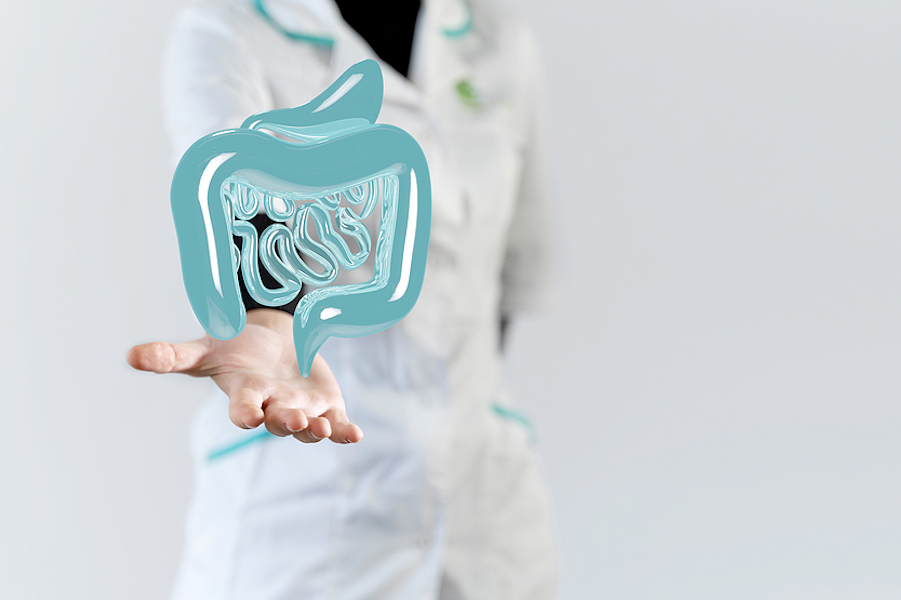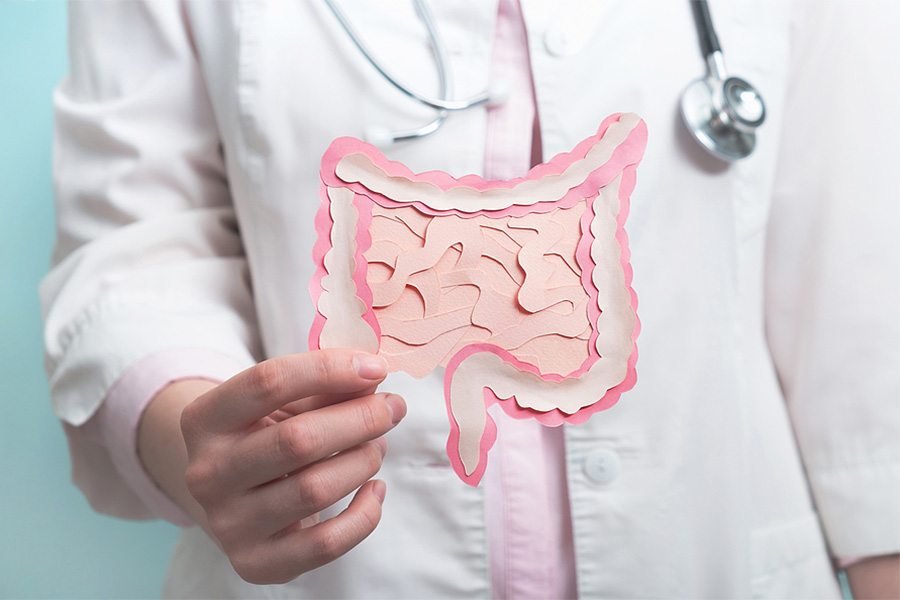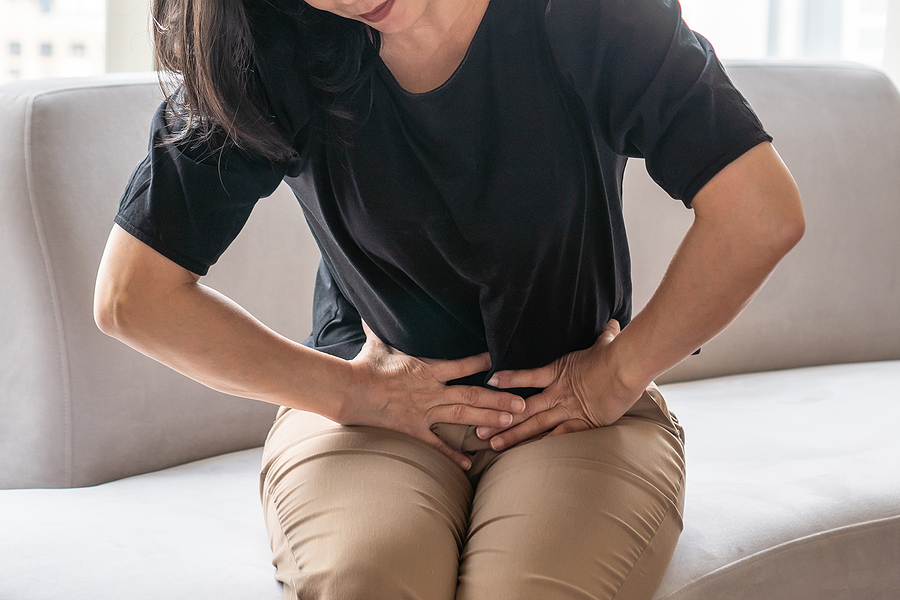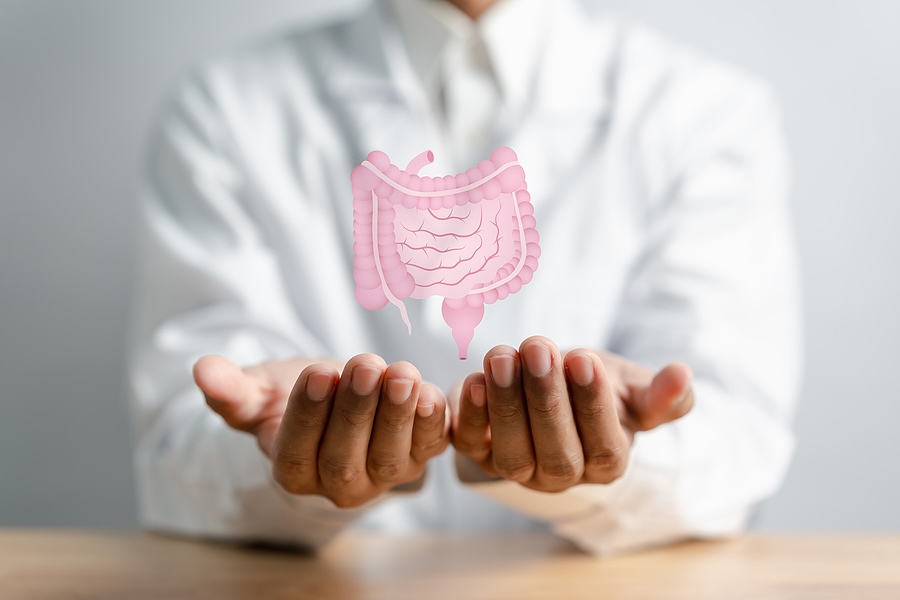How many times have you opened a can of food, stored and/or heated leftovers in plastic containers, or filled a water bottle before a hike? For most people, the number is far too high to count. Do you ever think about what chemicals are in those containers? If not, it’s high time you started to consider it — especially if you have chronic issues with your digestive health.
That’s right – new research out of Texas A&M University is showing just how much BPA can interfere with gut health! And we’ve learned so much recently about how balanced bacteria in your gut impacts your overall health that this is something you should really be aware of.
What is BPA?
I’d be surprised if you haven’t heard of BPA at all — it’s been news for quite a few years. More and more research is showing how this industrial chemical, bisphenol A (BPA), can end up in your bloodstream and cause a range of health issues.
BPA has been used for more than 50 years in the manufacturing of some plastics and resins. Research is showing how the chemical leaches from containers made with BPA into food or beverages and ends up in your body. In fact, the 2003-2004 National Health and Nutrition Examination Survey (NHANES III) conducted by the Centers for Disease Control and Prevention (CDC) makes it quite clear how widespread exposure to BPA is: there were detectable levels of BPA in 93% of 2517 urine samples from people six years and older.
Why is this a problem? Research also shows that there may be links between BPA exposure and poor health, including impacts on the brain, behavior and prostate glands of fetuses, infants and children. Studies have also shown that BPA might increase blood pressure, pose a potential risk for cancer, impact heart disease, obesity, and diabetes. BPA is also a known endocrine disruptor that can have adverse effects on the endocrine system.
This new research from Texas A&M University shows that there could be a connection between BPA and gut health, specifically Inflammatory Bowel Disease. Although the Food and Drug Administration takes the stance that BPA is safe at the low levels that occur in some foods, I think that for some people, any exposure is too much.
Which Products Contain BPA?
BPA is so ubiquitous that I’d be hard pressed to name all of the places you could be exposed. The chemical is everywhere — in the food you eat, the water you drink, even the air you breathe. The more you know about where you might come into contact with BPA, the more you can avoid it if you are concerned that it’s impacting your health.
Polycarbonate plastics and epoxy resins contain BPA. Food storage containers and water bottles often use polycarbonate plastics, and metal products, like food cans, bottle tops and water supply lines, are coated with epoxy resins. The Centers for Disease Control and Prevention (CDC) says that most people are exposed through the containers that hold their food and water.
But like I said, BPA is found in plenty of other products. Dental sealants, plastic wraps, cosmetic packaging, medical devices, compact disks, even cash register receipts can all contain BPA. You can find some products labeled BPA-free. But so many other things may contain the chemical without you ever knowing it. That’s why it’s so important to limit the things you DO know about.
BPA Health Effects On Your Gut
For several years, evidence has been mounting that shows that changing gut flora plays a role in a wide range of health problems, including metabolic diseases. But until much more recently, there wasn’t much information on how BPA might impact your gut microbiome.
In 2010, research showed that BPA decreased intestinal permeability, which allows pathogens and toxins to more easily enter the gut, potentially leading to the painful “leaky gut syndrome.”
A 2016 study published in Environmental Pollution demonstrated that dietary BPA intake caused diminished diversity of species in the gut microbiome of mice. It was also found to promote growth of certain bacteria while reducing the population of others. This study showed that the changes to the gut microbiome prompted by dietary BPA intake were similar to changes found with a high fat diet and a high sucrose diet, both of which have been demonstrated to impact metabolic disease. The study also revealed markers for the development of diseases associated with an unstable microbiota.
An imbalance in the microbiome is considered a risk factor for the development or relapse of inflammatory bowel disease, a term used to describe a set of inflammatory diseases in the gut, which includes Crohn’s disease, ulcerative colitis, and chronic symptoms like abdominal pain and diarrhea. The Texas A&M study, published in Experimental Biology and Medicine in June of 2018, found that BPA exposure increased inflammation and disease activity in the colon and reduced several metabolites associated with decreased colon inflammation. Not only that, but the study also showed that the bacteria negatively impacted were those responsible for producing serotonin. Reduced levels of serotonin can lead to depression and anxiety. So BPA might not only impact your gut, but through the connection between the gut and the brain, BPA exposure could also impact your mental health!
Related article: Anxious? Depressed? It’s Not in Your Head: It May Be in Your Stomach!
Tips for Avoiding BPA and Healing Your Gut
Because BPA is in so many products, it’s unlikely you can keep yourself away from it altogether. After all, manufacturing processes mean it’s in the air – and you have to breathe! But the following tips can help minimize that exposure, as well as give you some ideas on supporting your overall gut health, so you can feel your very best.
Change Out Your Food and Beverage Storage
One of the easiest ways to avoid BPA exposure is to pay close attention to what you are putting your food and drinks in. Make the switch from plastics to glass containers and high-quality stainless steel.
Eat Fresh and Frozen Foods
Since BPA is found in the can liner in many canned foods, you can avoid exposure by choosing fresh or frozen options instead. Keeping your diet free of processed foods is one of the best ways to keep your body healthy. And fresh or frozen vegetables often have better flavor and texture than canned, so this tip is a double win!
Be a BPA Detective
There are so many places BPA could be hiding. In fact, one food industry database revealed that nearly 16,000 products contained BPA in their packaging. The Environmental Working Group created a user-friendly database you can search to see if products you use frequently are among them.
Avoid Exposing Plastic Containers to Extreme Heat
Because polycarbonate plastics can break down over time when used at high temperatures, it’s best to avoid using a microwave to reheat foods in plastic receptacles. If you are drinking water from plastic bottles, be sure you don’t let them overheat in a vehicle or the sun for the same reason.
Boost These Nutrients
Scientists are exploring some specific nutrient support that might counter the effects of BPA exposure in a variety of ways. Extracts of green and black tea, for instance, were able to protect cells from oxidative damage, one of the harmful impacts of BPA on the body. Another study showed that lipoic acid had a similar antioxidant impact. In a study using pregnant mice, folate was able to protect offspring from later negative effects of BPA. And probiotics, which we already know support good gut health, were shown to increase breakdown of BPA in laboratory and rat studies.
Related article: What is Kombucha and How Can It Help My Gut?
Support Your Gut with Supplements
If you already have uncomfortable digestive symptoms, you may need to boost your gut health with the help of a dietary supplement like my GI Support. My proprietary blend has been specifically designed to repair your gut lining to prevent absorption of unwanted toxins – including BPA.
A Word of Caution
Manufacturers are taking note of consumer desire to reduce BPA exposure, and labels proclaiming that they are “BPA-free” are popping up everywhere. Be forewarned, however, that some of the chemicals used as a substitute may be just as bad.
Recent studies have shown that the common substitute bisphenol S (BPS) might pose similar adverse effects. One study in 2013 suggested that even less than one part per trillion of BPS has potential to disrupt normal cell functioning.
While choosing products without BPA is a great start, take it a step further by avoiding plastics altogether to give your gut the best chance at good health.
Consumer Awareness Can Keep Your Gut Healthy and Strong!
I know it can seem like every time you turn around, there’s an additional threat to your health from common everyday products. But knowledge is power, and once you know the potential connection between BPA and gut health, you can make conscious choices on the products you use. While you won’t be able to avoid BPA exposure entirely, you can certainly find viable alternatives for many of the common culprits. You just might find that you can finally get long term painful digestive symptoms under control!
References:
https://www.niehs.nih.gov/health/topics/agents/sya-bpa/index.cfm
https://www.cnn.com/2013/10/15/health/gallery/bpa-phthalates-products/index.html


